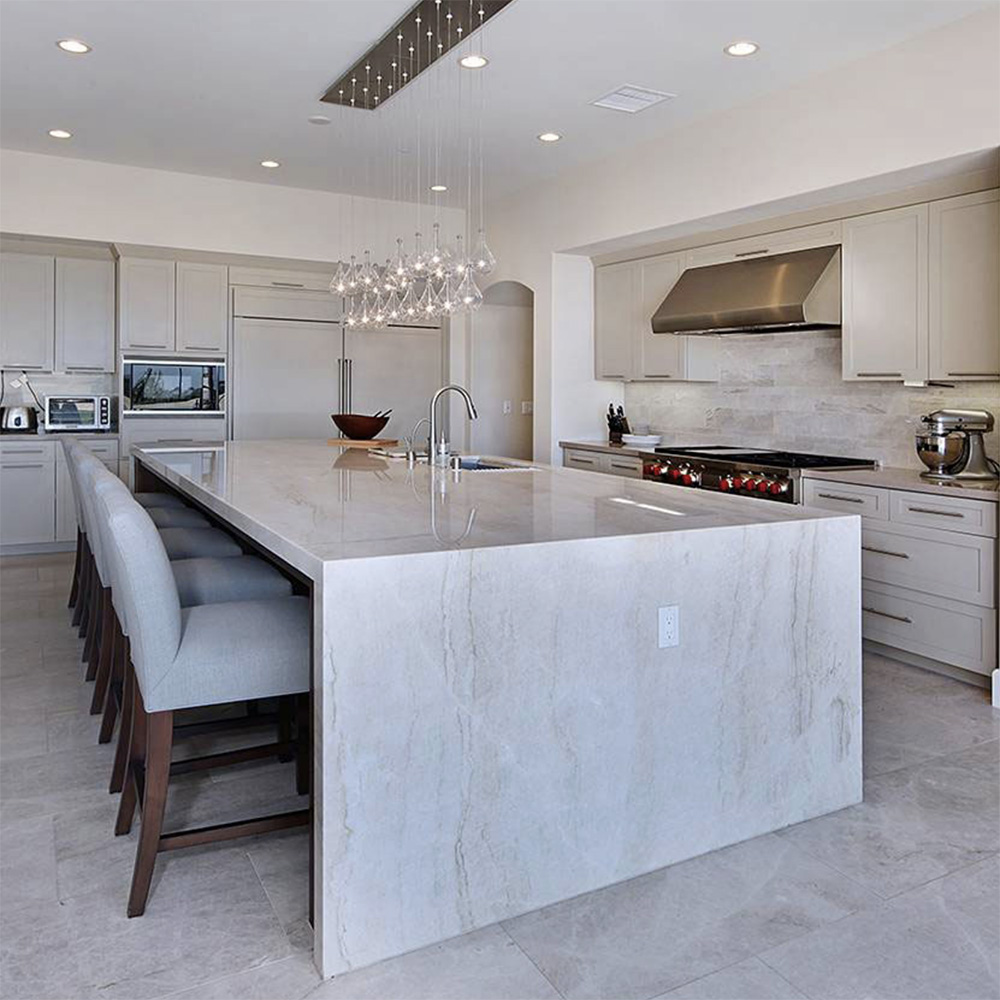Sealing Your Natural Stone Countertops
July 29, 2022Natural stone countertops can be an excellent investment in your home, but they require additional care to keep them looking beautiful. The most important thing you can do is to seal your countertops with a quality stone sealant.

What does a sealer do?
A sealer protects the surface of natural stone from stains, scratches, and other damage. It also helps to protect against bacteria growth and prevents the staining that can occur when acidic foods are left on your counters or floors for too long.
Is sealer the same as primer?
Sealers are not the same as primers, which usually contain latex and are used on new or unfinished concrete. Sealers are also not the same as paints, which are designed to cover up or change the appearance of a surface.
What are the different types of sealers?
There are two main types of sealers: Impregnator penetrating/water-based and Topical non-penetrating/oil-based.
Impregnator sealers penetrate the pores of your stone’s surface to provide protection against stains, while topical non-penetrating oil-based sealers sit on top of your stone’s surface providing a protective layer against stains but not penetrating its pores.
As you might imagine, there are a lot of sealers on the market. The best way to choose a stone sealer is by understanding your needs and what kind of protection you need for your stone surface.
What Type of Sealer Should You Use for Natural Stone Countertops?
The right sealer products can make a world of difference for your natural stone countertops, here are the typical types of sealers for the today’s most popular countertop materials.
- Granite Countertops: The most popular type of natural stone countertop, granite is both durable and beautiful. You will want to use a penetrating sealer to seal your granite countertop to protect it from stains and food spills.
- Marble Countertops: Marble is another popular natural stone option that is available in many colors and styles. You will want to use an impregnating sealer that will protect your marble countertops from stains and scratches.
- Quartzite Countertops: Quartzite is an extremely dense stone that requires minimal maintenance compared with other types of stone; however, if you plan on using your quartzite countertops daily then we recommend sealing them with a penetrating sealer. If you want to use your quartzite countertops as decoration rather than as a functional kitchen surface, then you can leave them natural without sealing.
- Quartz Countertops: Quartz isn't a natural stone and there is no need to seal your quartz countertops. Using one is a waste of time and money and could even damage your countertop. A quartz countertop is durable and beautiful without a sealant.
General cleaning and maintenance for your sealed granite, marble, and other natural stone surfaces
Your sealed granite, marble, and other natural stone surfaces will require regular cleaning. While you don't have to clean them every day and they are easy to clean, you should avoid leaving anything unattended on your stone for too long. Most experts recommend using a soft cloth and mild soap (like dish liquid) to clean the surface regularly. After each use of the stone, dry it with a clean cloth to prevent water spots from forming on your countertops or floors.
Sealing your stone kitchen countertops is an investment in the future of your home. The best way to protect your investment is by choosing the proper sealer for the area and type of stone you have installed. The best way to protect natural stone is by applying a sealer every year or two. It's important to remember that not all stones are created equal so make sure you understand which products will work best with each type before applying any sealer product onto them.
Learn More About Countertops
Sealing Your Natural Stone Countertops
6 Popular Kitchen Countertops You Should Consider For Your Remodel
